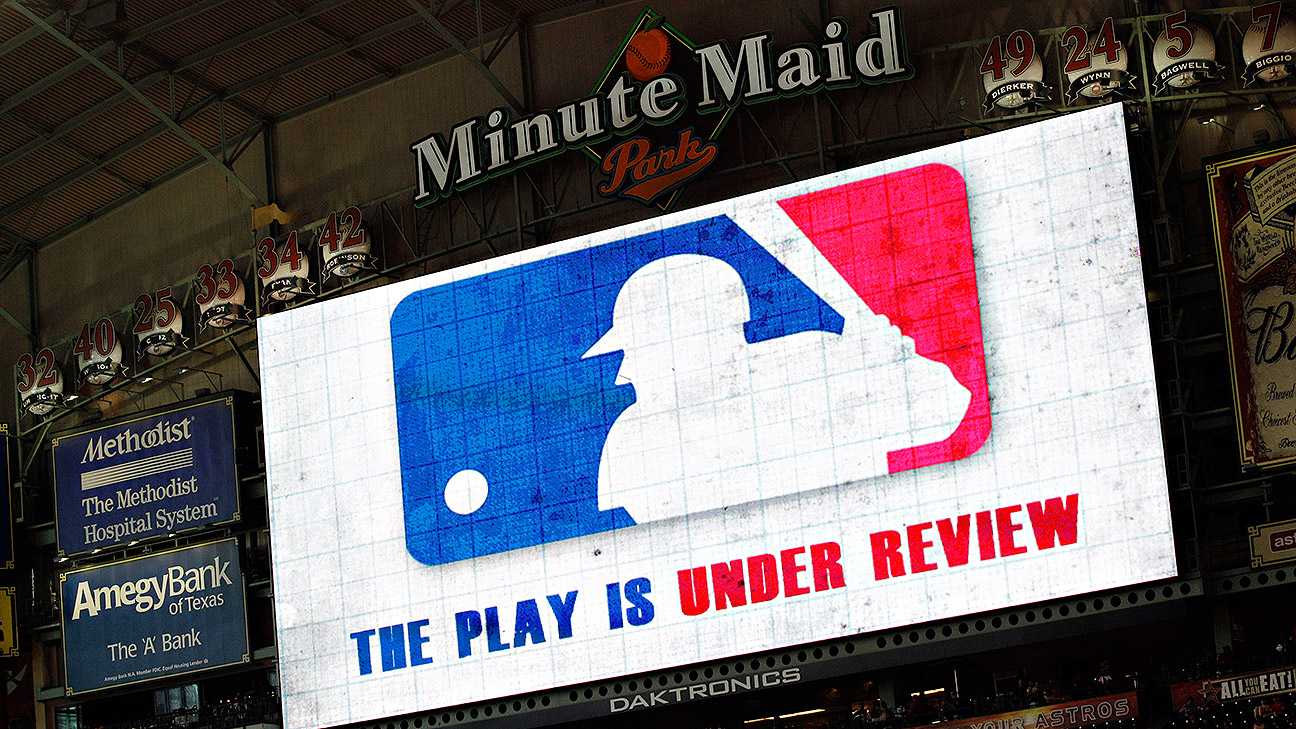By: Jeffrey Newholm
It was the situation baseball diehards dream about. Tie game. Bottom of the ninth. Winning run on second. The lowly Brewers were trying to give their fans something to smile about. Their nemeses, the Cardinals, were trying to edge back into the pennant chase. With two outs, Jonathan Villar raked a single to left-field, bringing Kirk Nieuwenhuis home. The umpire emphatically signaled, “safe!” Celebratory fireworks were set off and the “brew crew” paraded to home plate to celebrate. The perfect ending for the home team, right? Wrong. Because St. Louis manager Mike Matheny wanted to challenge the call. So here’s how the game ended:
The umpires went over and put headsets on.
The play was shown on the video board.
It was plain to see that Nieuwenhuis was safe.
The crew chief signaled safe again.
Just not the same, is it? Now one may argue that it’s crucial that, in the major leagues, we get the call right, particularly in the ninth inning. But I disagree. I think that something’s vital been lost in Major League Baseball in our quest to have perfect officiating. Just a few years ago, the call on the field was final. Managers could, and certainly would, argue until blue in the face. Sometimes the argument was sincere, and sometimes it was just for show. Either way, it was in vain. The call would stand. The game would go on. But now every time a play is close, fans have to hold off on celebrating or despairing with the specter of a review hanging over the play. The ump’s word is no longer gold, it’s just a maybe. Replay has drained much of the drama from a sport that was rather slow-paced to begin with. I, for one, will never look at the big leagues the same way again.
Now perhaps one could say that this is a petty, first world complaint. And certainly it is. But it is a symptom of two much deeper problems that our society faces. The first is our desire for perfection in everything. It should be noted that every Utopian societal vision has ended in catastrophe. It doesn’t matter if it was communist, capitalist or any “ist”. A do-gooder’s desire to solve all problems is unhelpful and, in my eyes, unwelcome. Henry David Thoreau put it best: “If I knew for a certainty that a man was coming to my house with the conscious design of doing me good, I should run for my life.” And that’s what happened in baseball: some smart alack tried to fix our problem with poor umpiring. But the solution is worse than the original problem.
Imperfection isn’t something to be feared or shunned. Making mistakes is how humans grow and evolve. Certainly ballplayers mess up. Even the best hitters fail two out of three times. Perfection not only isn’t attainable, it’s not even desirable. A perfect world or game would just spell universal boredom. Why should officiating be any different? Besides, replay still doesn’t make things perfect. NFL fans on either side of the “Dez caught/dropped it” fence can attest to that. If replay makes the game slower and duller, we lose much for no discernible gain. But the desire for perfection and self-improvement is common and understandable. The second problem with replay is more insidious.
My greatest concern with replay is our increasing preference for machines over humans. Of course, the benefits of technological advancement can’t be denied. There’s no question Americans of today have it better than our great-grandparents. But the law of diminishing returns applies just as much to technology as any other field. At this time, I fear those returns have diminished entirely. Italy’s Siena University finds Americans are overall less satisfied with their lives than their predecessors 30 years ago. And yet technology has improved by leaps and bounds in that time. Machines play a role in a productive society, but at this point that role is already well served. Baseball serves a cautionary tale about our increased reliance on gadgets.
Consider, for a moment, the plight of a Major League Umpire. He has spent years honing his craft to the point where he is considered amongst the creme de la creme of American officiating. He makes a comfortable six figure salary. And yet he’s human. He makes mistakes. Oftentimes he faces ridicule and subsequent remorse for those mistakes. But here comes a machine. It can tell fair or foul. It can tell safe or out. Someday soon it could even tell ball or strike. This ump could be out a job, and this would be a shame. Not just for him, but for us all. The human element is what makes sports so fascinating, mistakes and all. A perfect machine doesn’t fit in with an inherently imperfect game. If one extends this thought experience to society as a whole, I think the greater concern is realized.
Now please don’t think I’m a Luddite humbug. I enjoy how machines improve my life, and encourage further ingenuity to make more and better ones. But if technology were to completely dominate American society, life would be sterile and monotonous. In Kurt Vonnegut’s classic novel Player Piano, machines eventually put everyone except the engineers out of work. As the book goes on, even many engineers are being displaced by robots. A central computer has more power than the President and dictates every industry’s output and every person’s income and career path. Player Piano exhibits a society perfectly scripted by brilliant computers. In Vonnegut’s eyes, such a society is a nightmare. But for those who clamor for perfect baseball, this is the ideal society. Our country will have to decide which vision of technology is the one worth living with. By what I’ve seen become of baseball, I fear we’re making the wrong choice.
Sadly, the replay ship has sailed in the major leagues. So much infrastructure is invested in the system that there’s no way it would all be scrapped for any idealistic reason. It’s too late to save baseball, but it’s not too late to abandon the proper outlook on life. Imperfection should be something cherished and admired, not looked down upon. Perfection is a false idol that is the eternal enemy of the human, the good faith effort, the good enough. When we demand machines make our lives perfect, we extend this line of thought to dangerous places. Human life comes with failures, misery and shortcomings. If we accept this, life can be rich and fulfilling. If, like Major League Baseball, we try to fight this fact, our culture will become sterile, homogeneous and scripted. And that’s just not how life was meant to be.
You can follow me on Twitter @JeffreyNewholm and our blog @NutsAndBoltsSP.


 NFL
NFL





